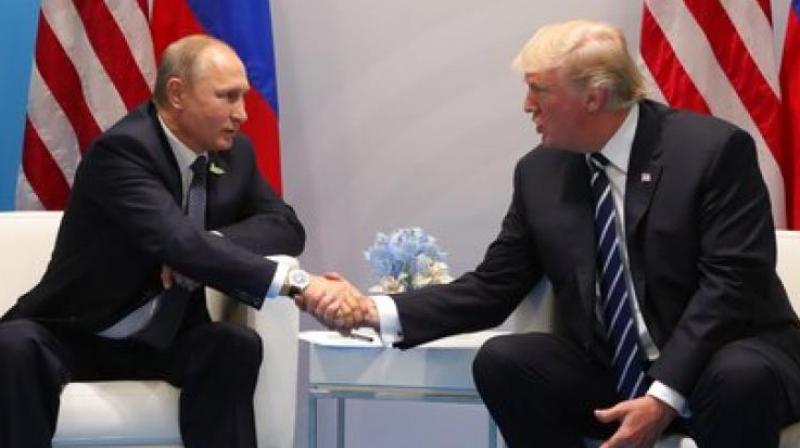US, Russia must move forward after Helsinki

Despite the widespread condemnation in American politics and the US media of President Donald Trump’s decision to go ahead with the Helsinki meeting with Russia’s Vladimir Putin, and the general sense of frustration, even anger, in the US after Monday’s summit, it deserves to be welcomed.
A relationship of dialogue between the world’s two most nuclear armed nations — rather than a state of never-ending confrontation, long after the Cold War ended — will make it easier to solve the world’s political and military problems, from which arise most economic and humanitarian crises.
To applaud the summit, and to hope Mr Trump and Mr Putin succeed in the goals they announced after their meeting — to work for an international environment of peace, starting to cut their nuclear stockpile, and engage each other to bring peace to nations like Syria in a “humanitarian” perspective, is not to spare criticism of their actions in other spheres.
Mr Trump hoped that Monday’s meeting will be the starting point for across-the-board dialogue on bilateral issues and difficult international issues. He preferred to take a risk for peace, he said, than play politics. For now, he must be taken at his word.
His actions, and Mr Putin’s, over the next 12 months, before Mr Trump becomes a lame-duck President, should indicate how far they are able to go in pursuit of their objectives. As Mr Putin said at the start of the press meet, the relationship between Washington and Moscow has been a “difficult” one for long. Both leaders agreed that they still differed on Iran. President Trump observed with acuity at the press meet that the US and the Soviet Union had cooperated in the Second World War against a common adversary, and they had never ceased dialogue in the Cold War years.
Influential quarters in America, including the media, can think of nothing but the allegation of Russian meddling in the 2016 US Presidential election. This, frankly, is of little concern to the world. Indeed, it is widely believed there is hardly a country — including Russia — in whose internal political processes Washington has not sought to interfere, often clandestinely. That question apart, Americans can’t hold the path of dialogue on key issues of global peace captive to the FBI’s investigations.
If the US is serious, it should take up the offer Mr Putin made at the press conference — that FBI special counsel Robert Mueller head a commission, send to Moscow the charges recorded against Russian officials, and then go to Russia to examine witnesses within a legal framework, provided Russia is given reciprocal access in America to Americans guilty in Russian eyes of committing crimes against Russia. This is a decent offer. The Americans should accept it and then get on with it.
H10

